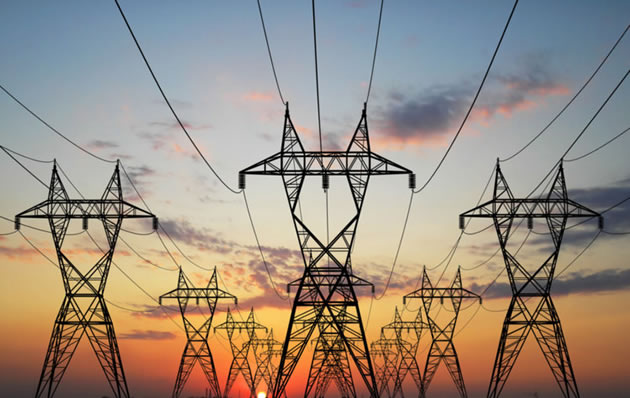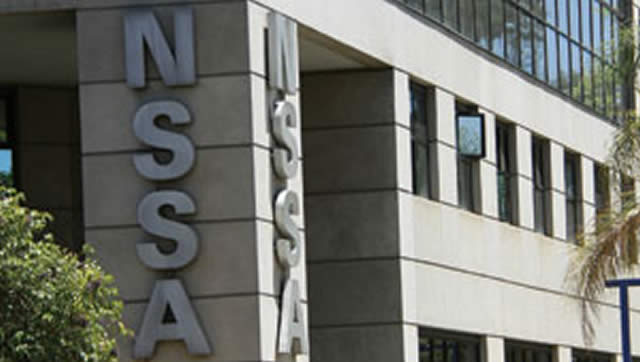EDITORIAL COMMENT: The case for acceptable power tariff

 Zesa is starting to do a lot of things right, but this is coming so many years after the plans were laid out. Hwange Power Station is finally to be extended and refurbished. Although it has a generating capacity of 920MW, this has never been achieved, owing to inadequate cooling capacity in the design, compounded by lack of routine maintenance and a method of use that falls far below best practice, especially for a utility that has both thermal and hydro stations.
Zesa is starting to do a lot of things right, but this is coming so many years after the plans were laid out. Hwange Power Station is finally to be extended and refurbished. Although it has a generating capacity of 920MW, this has never been achieved, owing to inadequate cooling capacity in the design, compounded by lack of routine maintenance and a method of use that falls far below best practice, especially for a utility that has both thermal and hydro stations.
Way back in the late 1980s, it was planned to extend Hwange during the early 1990s and take advantage of this extension to rectify some of the original design flaws. But Zesa was unable to do this, largely because of huge consumer pressure against the required tariff increases. For the same reasons, the station was run in an inefficient manner, while maintenance was skimped to cut short-term costs without regard to long-term requirements.
Now $1,2 billion has been lent by China to take the station to a maximum output of 1 520MW. If this had been done 25 years ago we would not be in our present predicament; Hwange being able to handle most of the off-peak loads and load-shedding being purely a solution to the short-term problem of water rationing at Kariba South.
There were longer-term plans in the 1980s to go further and build a second giant thermal station in several stages at Grassroots in the Sanyati area, with the first units coming on stream in the early 2000s. Again if this had been done as planned, Zimbabwe would be in an excellent position right now.
At least Zesa is now moving forward, and is swiftly commissioning its first 200MW emergency diesel station next month to help cope with the cut in output at Kariba South, a cut caused by long Southern African droughts rather than any inefficiencies at Zesa, and so acceptable.
But these extensions at Hwange, emergency imports and the emergency station require higher tariffs, as Energy and Power Development Minister Dr Samuel Undenge has warned. He wants the increases to be as low as possible to reduce their impact on household budgets, but he wants them to be adequate to pay Zesa’s bills, which will include interest and repayments on loans. Although everything still has to go through the independent regulator, the Minister thinks something as little as under 25 percent will be needed.
We think that tariffs must be adequate. We also think that consumers will pay increases under two conditions.
The first is obvious, that Zesa must make rapid progress to ensure that it delivers adequate power at all times. No one expects this to be instant, but significant progress regularly reported will be acceptable. Regular independent audits of Zesa finances, proving that the utility is using its income properly, would also help the public relations.
The second condition is that everyone pays. A lot of progress has been made. The majority of pure-energy consumers, households and shops, are now on prepaid meters and after a retrogressive decision by one of Dr Undenge’s predecessors was overturned, Zesa is accelerating progress to put all such consumers on these meters. But the delay has cost the utility as unpaid bills now approach $1 billion. But once prepaid meters are universal, Zesa can collect its debts rather easily, which will make repaying the Chinese loans a lot easier.
The minority of big industrial and mining consumers, with their complex tariffs, need to be on smart meters so that Zesa can see exactly what they are doing at all times. But even so the old manually-read meters can still be used for a while so long as they are read, and so long as these consumers pay by due date or are cut off, with a substantial deposit increase needed for reconnection.
Even with tariff increases, grid electricity is a lot cheaper than the emergency sources many use, from candles to generators.
And people are learning to cut consumption through better efficiency. So the increases must not be delayed, but must be fair, universal and the extra money must be spent properly.










Comments